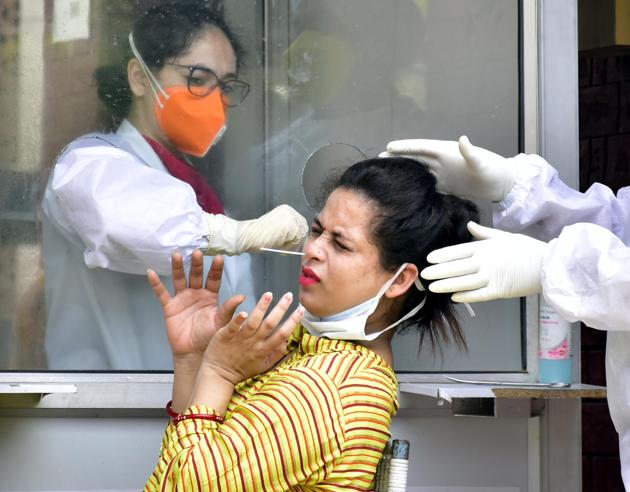Over 80% TB patients in Punjab not tested for Covid-19 yet
More than 80% patients of tuberculosis (TB) in Punjab are yet to be tested for Covid-19 even as the state health department had decided to collect samples of all the residents suffering from the disease that affects the lungs.

In July, the health department had said since people having Covid-19 and TB develop similar symptoms and since both ailments are fatal, the patients who will first get tested for TB will have to get their Covid-19 test done.
Of nearly 38,000 patients of TB in the state, only 7,000 have been tested for Covid-19 so far. Of these, 40 were found positive for the virus. Many of those found infected died.
“Since people diagnosed with tuberculosis and Covid-19 from cough and fever, there are chances that those infected with virus also suffer from TB, or vice versa. It is possible that many TB patients have remained undetected for Covid-19 or the people suffering from Covid-19 are still undiagnosed for TB,” said state Covid-19 nodal officer Dr Rajesh Bhaskar.
“We are trying to get more tests done of such patients. The figure is less because the TB patients, who were under treatment, were reluctant to visit Covid-19 testing centres, fearing that they might also get infected by the virus. But now, many district TB hospitals have started collecting samples for Covid-19, making it easier for the TB patients to come forward to get tested”, he added.
TB patients remaining undiagnosed is worrisome as it can increase community of transmission of the pandemic in Punjab.
As per the health department data, the state had recorded 58,000 tuberculosis cases in 2019.
Nearly 2,000 people die of tuberculosis in the state every year.
Dr Bhaskar added, “The number of TB patients reaches nearly 60,000 by the end of the year. But the figure remains low due to the pandemic situation this time. The department was facing difficulty to collect samples for TB testing from Covid-19 patients admitted in isolation wards of the hospitals. We have now directed the health teams to implement the policy.”





